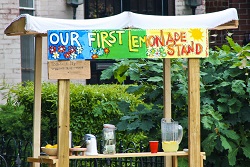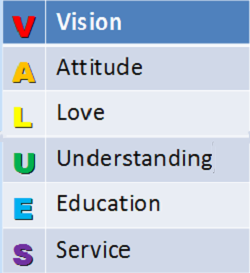On 30th January, we featured an article by Adam Lewis on how he aims to teach like a champion. In this follow up piece, he discusses how he has altered his teaching methods further in order to fit in with this ideal.

I have continued to employ the methods put forward in my last blog post. These adjustments are now starting to become embedded into my practice, so that I am actively aware that I am using them consistently and this seems to be having a positive effect on my students. I will now not continue until every hand is straight up and, as a result, all my classes are quicker to be ready to listen with their hands straight up in the air a lot quicker than previously in the year.
Similarly, if one student is not following the procedure, I use positive group correction ("thank you to the whole of the left side of their room with their hands straight up") and, if not successful, move on to anonymous individual correction ("I'm just waiting on one student on the right side to put their pen down and put their hand straight up"). This has resulted in some students admonishing the student who the class is waiting on, which is negating the positive effect of the anonymous individual correction, but on the other hand, it does seem to be creating a strong team within the class.
I have adjusted my technique to include tracking the speaker. These are clear instructions to turn and watch the person who is speaking at the time. Although this is not completely embedded, I am reminding the students who are often the ones not seen tracking to try and do this consistently. When I introduce SLANT into my practice, I hope that this will be even more consistent.
I’m constantly reading articles in broadsheets, such as; “We’re so well educated - but we’re useless” and “The dead hand of central government is weighing down on children and schools”. It’s obvious that the government’s curriculum reforms, as well as proposals to devalue vocational courses, really has meant that schools and colleges need to be creative and look at more innovative strategies to link learning to real life. We need to realise that the pressures of exam results run the risk of turning students into examination machines without actually preparing them for life.
This April, why not throw a surprise 450th birthday party for Shakespeare, with decorations, cake, the lot? Create an afternoon that will stand out in their memories forever. Inspire them! What could they do with their lives? Shakespeare did not start out with pots of money. He used education, life experience and imagination to create stories we still relate to.
How best to teach children to deal with real-world, practical business skills? Elizabeth Gimblett, a professional with experience in this area, discusses how to teach these topics to schoolchildren in a way that’s fun and enterprising.

Enterprise in schools can be seen as a lower priority, but the beauty of enterprise initiatives is they bring learning to life, showing the learner how to apply their learning to the real world, and how this can benefit them.
Enterprise projects will benefit numeracy, literacy, confidence and creativity. The more they are practiced, the deeper the understanding. Imagine a busy stall on a primary school playground – children have to apply agile mental maths to handle money efficiently and get through the queue before break is over – but the learning is not just about mental maths and money management, it’s about crowd control, and working under pressure; it’s about communication and good customer service; it’s about being well organised, problem solving and working together as a team. In short it’s about employability skills and best of all the children love it. Further into their future, 82% of employers recruiting graduates are most interested in evidence of their employability skills, so real value lies in education making provision for developing these skills.
How does a student gain knowledge? Is it via reading, or rather by collaborative exercises? As an international educator of 25 years and currently teaching in Mumbai, Maggie Hos-McGrane gives her thoughts on the issue.

I'm reading George Siemens' Knowing Knowledge very slowly as there is a lot to take in and think about. There are a couple of questions that I'm thinking about today:
I'm now thinking about the connection between learning and knowing, and have come across the word connectivism which asserts that learning is a network-forming process. The success of these networks in encouraging knowledge varies depending on a variety of things:

Children and young people enjoy exploring the role of values in their daily lives because of the excitement as they begin to see more relevance in what they are learning. This awakening can help them experience the benefits of a positive mindset and how working on personal qualities, including resilience and patience, contributes to a greater likelihood of achieving their dreams and goals.
Many of us are probably not consciously aware of the degree to which we are driven by what we treasure and feel is important – in short, what we value. However, being more mindful of these influences is empowering
To help children and young people strive to be the best that they can be, they need to start with a vision of themselves.
Here is a simple framework that provides a brief and regular focus on personal progress using the VALUES letters as prompts. It helps to make each day as meaningful and productive as possible. During the course of a week the exercise captures the imagination of participants, allowing their ideas to shape their views of life and to persue high and lasting goals, both in the week ahead and in the longer term.
Keeping a journal helps with the daily discipline and enables children and young people to look back with pride on what they have accomplished.
Teacher Daniel Edwards, who uses iPads with his A-Level PE class, has reported the biggest improvement in his students' grades since he began teaching. He also comments on a record breaking set of GCSE results encountered at a Foundation in Cambridge after they implemented a 1:1 learning programme. This provides a great source of encouragement for adopters of the tablet into their lessons.

I should state from the outset I’m not sure the impact of any new technology in the classroom will ever be truly measurable.
It won’t be for the want of trying and there are a number of case studies trying to do just that. However, with that in mind, what conclusions can I draw from two years of iPad use in the classroom?
I have two areas that can be discussed anecdotally. The first is an A level class of 15 students who have spent the last two years studying PE using iPads. They recorded the best A-Level results in my ten years at the school. For those familiar with the way UK grades are measured, the value-added average was +17%.

Remember that moment when you get home from work or back from a night class and your partner’s in a bad mood? How long does it usually take you to work it out? Hours? Minutes? A few seconds?
Most of the people I ask say a few seconds, some even go as far to say that they can tell before they’ve even stepped foot in the room. However long it takes you, students are no different, they’ll make up their mind whether the lesson will be enjoyable or not within the first five minutes. This can mean the difference between an engaged learner and a disruptive one, and once an opinion has been formed it can take a lot for that to be changed.

A community-driven platform for showcasing the latest innovations and voices in schools
Pioneer House
North Road
Ellesmere Port
CH65 1AD
United Kingdom